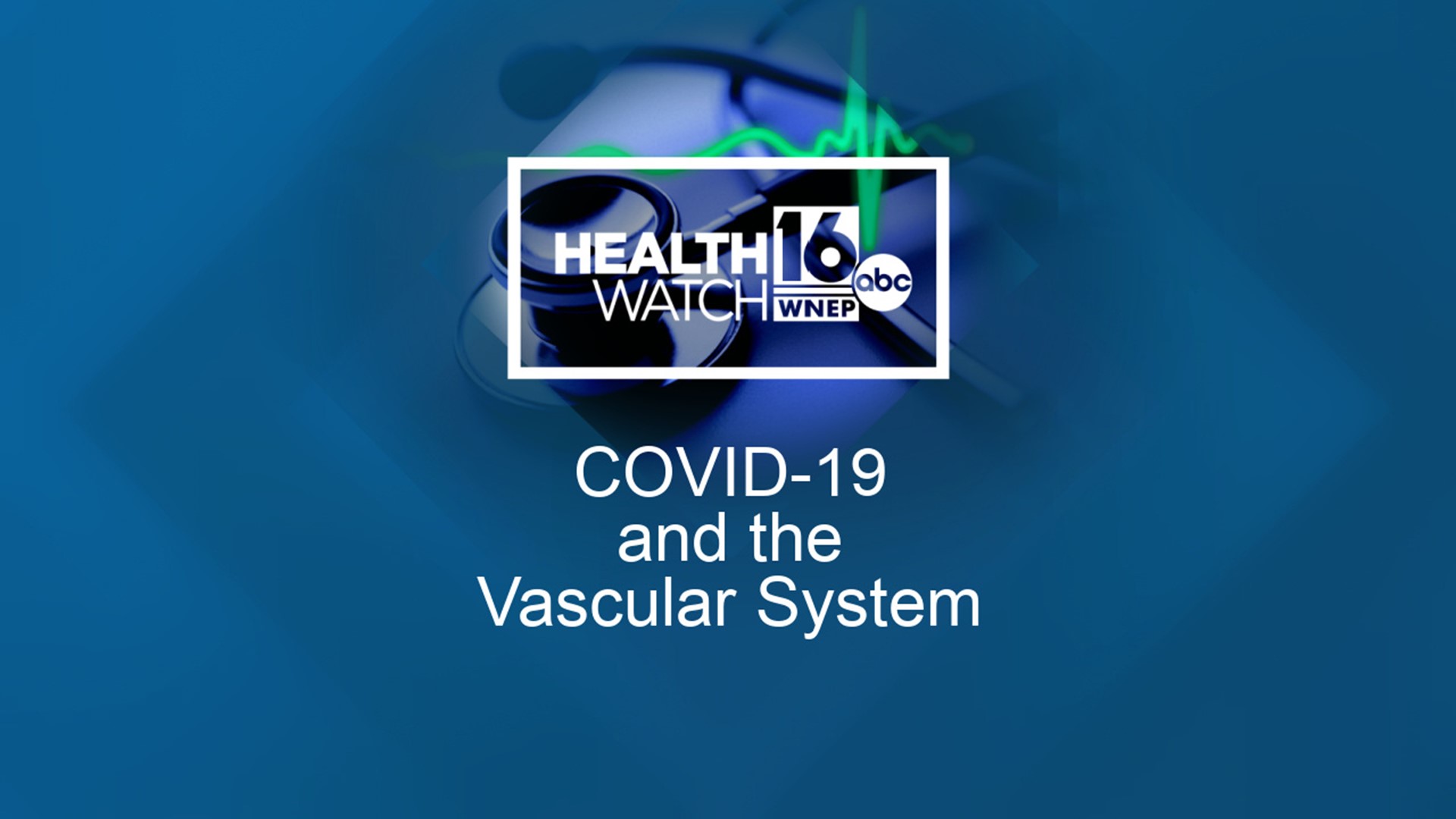DANVILLE, Pa. — The vascular system is made up of arteries, veins, and capillaries, which work to carry blood throughout the body. And like so many other systems, it is susceptible to harm from the COVID-19 virus.
"The big thing that we've seen within both the venous and arterial systems is that there is a higher rate of blood clots and clotting events in patients with COVID," said Dr. Greg Salzler, a vascular surgeon at Geisinger Medical Center.
Dr. Salzler says early on in the pandemic, in hard-hit places like Italy and New York City, it was noted that otherwise healthy people developed serious clotting complications with COVID-19. and that played out here as well.
"We're seeing more blood clots in the veins, such as deep vein thrombosis or DVTs, and those can travel to the lungs and cause pulmonary embolisms, which in patients pretty sick with COVID and pneumonia, that can be pretty devastating."
In rare cases, clotting in the arteries can lead to strokes, organ issues, or potential loss of a limb if the clot is in an extremity.
Dr. Salzler says vascular system problems are more likely to happen in very sick patients, those in intensive care units and doctors have been aggressive in doing scans to watch for clotting. But problems are possible even in more mild cases. He explains one of COVID-19's hallmarks is that it can cause an intense inflammatory reaction in the body.
"When you have an intense inflammatory reaction, you produce factors that will clot more rapidly. That's one of the factors leading to this."
If you have a personal or family history of clotting disorders, Dr. Salzler says it's simply something to be aware of if you do end up with the coronavirus.
He also notes the only way to avoid those issues is to avoid getting the virus in the first place. He recommends following those guidelines of wearing a mask, washing your hands, and keeping your distance from others.

